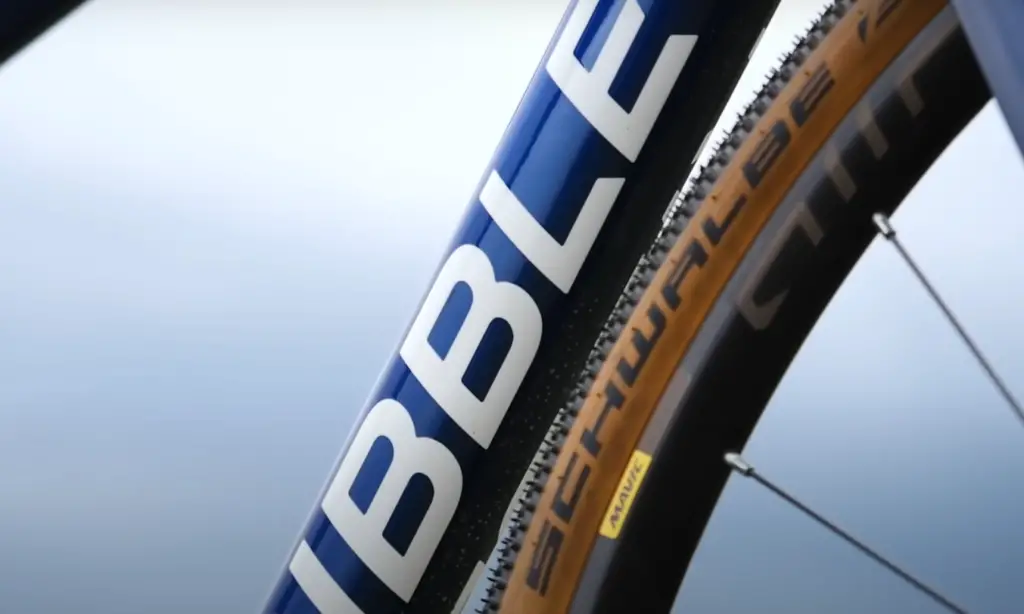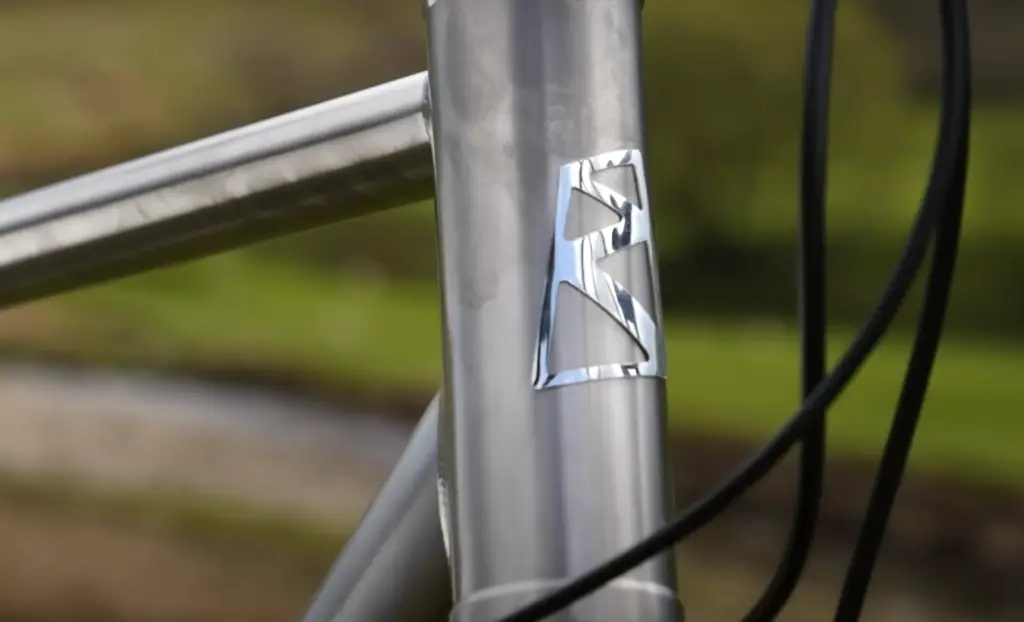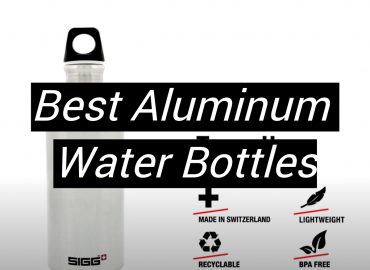For avid cyclists, having a reliable bike with an indestructible frame is a must. But how long-lived are aluminum bike frames? Understanding the composition of the frame and the process of its production will help you determine if this material is what you need to make your biking dreams come true! Whether you’re looking for high end performance or just cruising around town, understanding more about aluminum frames and their lifespan can get you on the right track towards getting the perfect ride. Read on to learn more about selecting durable materials that will last!
What Types of Bikes Are There?
There are a variety of types of bikes available for riders to choose from. Road bikes, mountain bikes, hybrid bikes, touring and commuter bikes, cruiser bikes, BMX bikes, and electric-assist bicycles are some of the most common options.
- Road bikes have lightweight frames made from either aluminum or carbon fiber and feature narrow tires with shallow treads designed for riding on paved roads. They’re built to be fast and efficient for long distances.
- Mountain bikes are designed for off-road use on rugged trails. They feature wide knobby tires that provide traction in mud and snow, along with shock absorbers and stiffer frames than road bike frames to handle bumpy terrain.
- Hybrid bikes are a mix between road and mountain bikes, combining features from both types of bikes. They usually have wider tires than road bikes but still narrower than those on mountain bikes, as well as more upright riding positions that are more comfortable for longer rides.
- Touring and commuter bicycles are designed for long-distance riding or commuting to work. They feature wide tires, relaxed geometry, and sturdy frames with plenty of room for carrying cargo.
- Cruiser bikes feature a more laid-back design that is perfect for casual riding along boardwalks or paths. They feature low center of gravity designs with higher handlebars, comfortable saddles, and wide tires for stability.
- BMX bikes are small and lightweight bikes designed for dirt track racing and off-road stunts. They feature strong frames with higher ground clearance, wide handlebars, and knobby tires with extra grip on uneven terrain.
- Electric-assist bicycles use a battery-powered motor to help riders pedal up hills or cruise at higher speeds than they could on their own. They feature similar frames to standard road or mountain bikes but may have larger tires and more relaxed geometry for a comfortable ride.[1]
No matter what type of riding you plan to do, there is sure to be a bike that fits your needs perfectly!
What Parts Does a Bike Consist of?
The typical bike contains several different parts and materials. The frame is the main component of a bike – it holds everything together.

It can be made from various materials, such as steel, aluminum, titanium, and carbon fiber. In addition to the frame, other key parts include the wheels (which provide stability and motion), handlebars (which allow for steering control), gears (to help make cycling easier or harder depending on the terrain), brakes (for slowing down or stopping), saddle and pedals (for riding comfort). [2]
Depending on the type of bike, there may also be components like suspension forks, fenders, lights, racks and mudguards. Finally, all bikes require specific types of lubricants and cleaning products to keep them running smoothly.
Used Materials For Bike Frames
The materials used to construct bike frames will depend on the type of bike and its intended purpose. For instance, mountain bikes typically use alloy frames as they are light yet strong and can withstand the hard knocks that come with off-roading.
On the other hand, road bikes often feature lighter carbon fiber frames for optimum performance and agility. Steel is also commonly used for touring bicycles due to its durability.
Aluminum is a popular choice for budget-friendly models as it is lightweight but still provides good strength. Titanium is a luxurious material favored by some cyclists due to its stiffness and low weight, however, this type of frame tends to be more expensive than other materials. Regardless of what material you choose, all types of bike frames should be designed properly in order to provide the best possible ride. [3]
How Strong Is Aluminum For Bike Frames?
Aluminum is an incredibly strong and lightweight material, making it a great choice for bike frames. It is exceptionally resistant to corrosion and damage, which makes aluminum frames durable enough to withstand years of use. The strength-to-weight ratio of aluminum makes it ideal for bicycle frame construction because it allows designers to create sturdy frames that are also light in weight.

Aluminum alloy bike frames are also much lighter than steel or titanium frames, so they can help riders increase their speed and agility while riding. Furthermore, aluminum is more cost-effective than other metals used in frame construction, providing budget-conscious bikers with a great option for creating a quality ride.
Plus, aluminum frames provide excellent vibration dampening due to its elasticity – giving you greater comfort and control while you’re on the road. All in all, aluminum is an excellent choice for bike frames and will continue to be a popular option for many years to come. [4]
How Is An Aluminum Bike Frame Made?
Aluminum bike frames are generally made by forming sheets of aluminum into shapes and then welding them together. The process starts with cutting the aluminum sheets to the correct size and shape. This is usually done using a CNC machine, which is a computer-controlled cutting tool.
After the pieces have been cut out, they are formed using various methods such as hydroforming, roll-forming, or extrusion. Once all of the pieces have been formed, they can be welded together to create the frame. Welding may be done manually with an electric arc welder or automatically with robots in large production environments.
After welding is complete, assembly begins which includes installing components like dropouts and other hardware necessary for building bicycles. Depending on the desired end product, additional finishing processes may be done such as sanding and polishing to give the frame a smooth finish. Finally, after all of these steps have been completed, the frame is ready for painting or powder coating to complete its look. [5]
What Are The Most Common Aluminum Alloys Used For Bike Frames?
The most common aluminum alloys used for bike frames are 6061 and 7005. Both of these alloys offer excellent strength to weight ratios, making them ideal for bicycle frames.
The 6061 alloy is the most commonly used because it offers a more forgiving ride quality than 7005. It’s also cheaper and easier to work with, making it popular amongst frame manufacturers.

The 7005 alloy provides greater rigidity and stiffness than 6061, which makes it well-suited for heavier riders or those who prefer a stiffer frame.
Both alloys can provide long-lasting durability and performance if properly cared for. Choosing between these two alloys comes down to personal preference as they both offer similar benefits in terms of strength, weight, and ride quality.
Additional alloys such as 7002 and 7003 have become more popular in recent years as they provide some of the benefits of 6061 and 7005 with slightly improved strength at lighter frame weights. However, these alloys are not as commonly used yet, so it’s important to research them further before making a purchase. [6]
The Reasons Why Do Bike Frames Wear Out?
Bike frames wear out over time due to a combination of factors.
Corrosion weakens the metal, meaning that it can no longer withstand the forces required to keep a bike in good working order.In addition to corrosion, fatigue can also cause frames to wear out prematurely. Fatigue occurs when stresses on the frame are repeatedly applied through use, causing tiny cracks in the material which gradually grow until they become too large for safe use. This can be accelerated if components are not regularly inspected and replaced as necessary.
The type of riding you do can also affect how quickly your bike frame wears out. For example, riders who regularly ride off-road or on rough terrain are more likely to experience wear and tear on their frames than those who mainly ride on tarmac roads.
The quality of material used in your bike’s construction is important for its longevity. Inferior materials will not stand up to use as long as higher quality frames made from better metals or composites. Replacing worn bike parts is essential for safe riding and can help prolong the life of your frame by preventing premature wear and tear. Regularly cleaning, inspecting, and lubricating components helps to protect them from corrosion and fatigue. It is also a good idea to invest in a high-quality frame made from durable materials such as aluminum. [7]
How Long Do Aluminum Bike Frames Last?
The longevity of aluminum bike frames is determined by many factors, including the type of bike and how it’s used. Mountain bikes with full suspension systems may last longer than road bikes because they are designed to handle more stress from off-road riding.
However, in some cases an aluminum frame may only last three to five years due to inadequate maintenance or damage caused by an accident or rough terrain.The best way to ensure your aluminum frame will last as long as possible is to have regular tune-ups and cleanings, and avoid aggressive terrain that may cause excess wear on the frame. To get a more accurate idea of how long your frame may last, consult a professional bike mechanic as they can inspect the frame and assess its condition. With proper maintenance, you should have no problem getting many years of enjoyment out of your aluminum bike frame.

Many riders also choose to upgrade their aluminum bike frames with a titanium or steel version that can last even longer. Titanium is known for its durability and strength, while steel is less expensive but still offers great longevity. Both options are excellent choices for those who want maximum performance from their bikes over time. [8]
Do Aluminum Bike Frames Crack?
Aluminum bike frames are generally considered to be very strong and unlikely to crack. It is an ideal material for bike frames. However, it does have its limits when it comes to strength and durability. Like any other metal frame, if exposed to too much stress or pressure over time, an aluminum frame can begin to crack or show signs of wear and tear.
Overloading the frame with too much weight or riding in extreme conditions can also lead to cracks in the frame. If you take proper care of your aluminum bike frame and keep it within its designed limitations, chances are you won’t experience any cracking issues.
It’s vital to regularly inspect your frame for any signs of damage or wear and tear. If you do notice any cracks, be sure to have your frame inspected by a professional before continuing to ride on it. Proper maintenance will help ensure that your aluminum bike frame can last for many years of use.
Depending on the severity of the problem, repairs may range from welding in additional support material to replacing the entire frame altogether. Taking care of any cracked frames immediately can help prevent further damage or injury caused by riding with a damaged frame. [9]How To Prevent Damage To Your Aluminium Bike Frame
- Clean your frame regularly. Dirt and grease can cause corrosion to the frame, so be sure to clean it frequently with a mild detergent and warm water.
- Avoid riding in wet or damp conditions as much as possible, since moisture will accelerate corrosion of the aluminum frame over time.
- Make sure to use protective covers when you aren’t riding your bike, such as during storage or transport. This will help keep dirt and dust from accumulating on the frame and causing premature wear-and-tear.
- Keep your bike away from harsh chemicals or solvents that could damage the surface of your aluminum frame over time.
- Waxing your aluminum bike frame periodically can help protect against dirt, dust, and other elements.
- If your bike frame does get dented or scratched, use a fine-grit sandpaper to buff out the area before applying touch-up paint or clear coat. This will help preserve the original appearance of your aluminum frame for longer.
- Check for any signs of corrosion on a regular basis and address them immediately if found. Abrasive cleaners can be used to remove rust spots from the aluminum frame without causing further damage.
- Don’t forget to inspect all components of your bike periodically for signs of wear-and-tear as well, such as loose bolts or frayed cables.
FAQs
Are aluminum bikes durable?
Yes, aluminum bikes are generally very durable.

This material is strong and lightweight that holds up well to frequent use. It’s an ideal choice for those looking for a bike that will last for many years while also being easy to maneuver. With proper maintenance, an aluminum bike can give you lasting performance and reliability.
Do aluminum bikes last longer than carbon?
The answer to this question is complicated, as it depends on several factors such as how the bike has been maintained and ridden. Aluminum bikes are generally considered more durable than carbon frames because they are less susceptible to damage from rocks, branches and other debris that can impact a frame. Additionally, aluminum frames don’t suffer from fatigue-related fractures or failures over time like some types of carbon frames do. That said, an aluminum frame may not be as light or stiff as a comparable carbon frame, so if you’re looking for maximum performance then carbon may still be the way to go.
What is the disadvantage of an aluminum bike frame?
One disadvantage of an aluminum bike frame is that it is not as strong and durable as other materials, such as steel or titanium. Aluminum frames can be more prone to flexing and deforming under hard impacts, making them less suitable for downhill mountain biking or other high-impact activities. These frames may also be more susceptible to corrosion in wet climates due to their soft metal properties. Additionally, aluminum bike frames are less shock absorbent than steel or titanium options which can lead to a harsher ride experience. Finally, they tend to be heavier than other materials used in bike construction so they may not offer the same performance advantages when it comes to climbing hills or accelerating quickly.
Does aluminum wear out?
The answer to this question depends on the environment in which the bike is used. Generally, aluminum does not wear out as much as other materials. Aluminum is corrosion-resistant and can withstand extreme temperatures without breaking down easily. In some cases, however, aluminum can become corroded over time due to exposure to saltwater and other corrosive substances. To prevent this from occurring, it’s important to keep the bike clean and free of any debris that could cause damage or accelerated wear and tear. Additionally, regular maintenance is recommended.
Useful Video: Carbon Vs Aluminium Vs Titanium Vs Steel: Which Bike Frame Material Is Best?
To Sum Up
It is essential to conclude that aluminum frames offer several advantages for cycling enthusiasts. Not only are they durable, but lightweight and cost-effective. Maintenance is also easier with an aluminum bike frame; occasional polishing can help keep it looking new as well as adding value when reselling it in the future. All in all, aluminum bikes are a worthwhile investment for any cyclist today. So if you’re looking for a light and reliable solution for your next ride, favor aluminum frames!
References:
- https://www.centurycycles.com/buyers-guides/bicycle-types-how-to-pick-the-best-bike-for-you-pg9.htm
- https://thebestbikelock.com/parts-of-a-bike/
- https://www.rei.com/learn/expert-advice/bike-frame-materials.html
- https://wheretheroadforks.com/steel-vs-aluminum-bike-frame-pros-and-cons/
- https://www.bikeradar.com/advice/buyers-guides/bike-frame-materials/
- https://outspokincycles.ca/whats-the-advantage-of-aluminum-alloy-bikes/
- https://bicylo.com/how-long-do-bike-frames-last/
- https://southerndistributors.co.uk/2021/07/22/how-long-will-an-aluminium-bike-frame-last/
- https://bicylo.com/do-aluminum-bike-frames-crack/
- https://blackmtncycles.com/care-for-your-bare-aluminum-frame/






